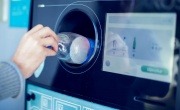Generation Awake campaign releases consumption guide

The European Commission-led project, Generation Awake, has released a ‘Consumption Guide’ to inform people about the impact of their consumption behaviour and provide alternative ‘wise choices’ for the planet.
The guide has gathered advice that promotes resource efficient behaviour and grouped it by theme (recycling, reusing, waste etc), to ‘help people better understand the impact of various items and daily habits on natural resources and the environment’.
Generation Awake is a campaign created by the European Commission and aimed at adults aged between 25 and 40 in order get them ‘making smart day-to-day decisions that consider the environment’.
Its focus is on the importance of reusing and recycling as well as highlighting ‘what each one of us can do in our daily life to save water, energy and other natural resources, and reduce waste’.
Consumption Guide details
The Consumption Guide provides detailed information on being resource efficient and how to reduce waste.
It has been released as part of the EC’s push to reduce the risk of resource scarcity, as if consumption rates aren’t cubred, the EU will be extracting ‘five times more resources than we do today’ in 2050, which the guide claims ‘probably won’t be possible’.
It reads: ‘We need natural resources like metals, minerals, forests, land, food, air and water for our prosperity and well-being, but we are using them up faster than they can be replaced. When we destroy animals and plants that keep our ecosystems in balance, we are storing up problems for the future.
‘To make sure we – and our children – can look forward to a good quality of life, a healthy environment and a vibrant economy, we need to change the way we use resources, as individuals and as a society.
‘Resource efficiency is about doing more with less, using resources sustainably and minimising our impact on the environment.’
Resource efficiency tips
The guide suggests a range of actions consumers can take to reduce their impact on the environment. These include:
Waste
- recycle as much waste as possible both at home and on the move;
- never throw away paper – either recycle or compost it;
- make a weekly meal plant and buy only what you need to reduce food waste;
- compost any unavoidable food waste and try and use up foods ‘beyond their best’ in recipes;
- avoid unnecessary and unrecyclable packaging;
- carry shopping bags with you to avoid using new plastic bags;
- opt for e-newsletters and online bills/statements rather than paper versions to reduce paper waste;
- sell/donate old working electricals or give them to a company that reconditions old devices.
Energy Efficiency
- wash clothes at 40 degress Celsius or less;
- invest in double- or triple-glazed windows, or put up thick curtains to retain heat;
- swap all high-energy bulbs for energy-efficient versions and turn off all lights when not in use;
- install a smart meter to see how much energy is used, and try and cut back on consumption;
- consider switching electric companies to those who use renewable sources of energy;
- only charge electrical devices to 80 per cent and turn off the energy source as soon as this is reached.
Also incorporated within the guide is advice on water consumption, which provides information about the indirect costs and consumption of water.
The Awakeners
Earlier this year Generation Awake launched a short film that promotes the message of viewing waste as a resource as part of its environmental campaign.
The light-hearted film takes the form of a blockbuster-esque trailer (complete with gravelly voiceover) for ‘The Awakeners’ in which waste bin Richard Rubbish ‘suffer[s] disrespect, until one day, he stood up’ and is helped by shopping bags Impulse Inga, Chubby Charlie and Routine Robbie. Viewers are then told to ‘join “The Awakeners” at generationawake.eu and turn rubbish into a resource.’
It aims to demonstrate how reducing, reusing and recycling materials can deliver economic benefits, and suggests ways in which consumers make more sustainable choices – by not making impulsive purchases (with the help of Impulse Inga) or buying too much (with advice from Chubby Charlie) and adopting more sustainable habits (based on Routine Robbie’s suggestions), for example. A fifth character, the bucket ‘Water Mania Walter’ offers advice on how to treat water as a resource.




